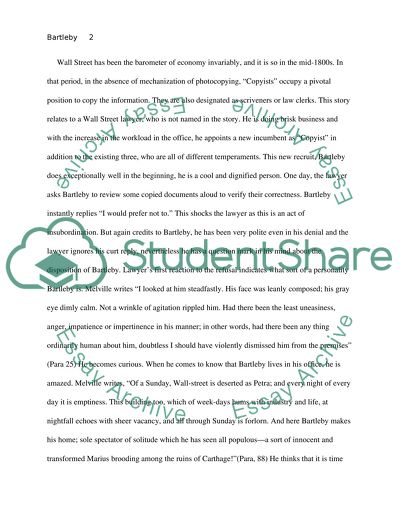Cite this document
(“Bartleby: A Story of Wall Street Essay Example | Topics and Well Written Essays - 2750 words”, n.d.)
Retrieved from https://studentshare.org/english/1404460-bartleby-a-story-of-wall-street
Retrieved from https://studentshare.org/english/1404460-bartleby-a-story-of-wall-street
(Bartleby: A Story of Wall Street Essay Example | Topics and Well Written Essays - 2750 Words)
https://studentshare.org/english/1404460-bartleby-a-story-of-wall-street.
https://studentshare.org/english/1404460-bartleby-a-story-of-wall-street.
“Bartleby: A Story of Wall Street Essay Example | Topics and Well Written Essays - 2750 Words”, n.d. https://studentshare.org/english/1404460-bartleby-a-story-of-wall-street.


